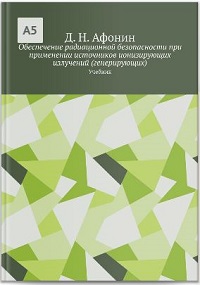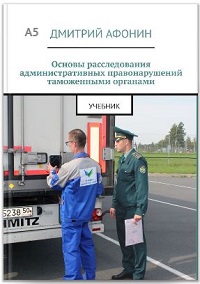Биомеханика нарушений опорно-двигательного аппарата у пользователей смартфонов
Аннотация
В настоящее время постоянно увеличивается число лиц, постоянно использующих смартфоны в повседневной жизни. Частое использование смартфона вынуждает пользователей принимать неудобную позу, что приводит к повышенному риску заболеваний опорно-двигательного аппарата и развитию болевых синдромов.Ссылка для цитирования: Рысев Ю.Л., Афонина А.Д. Биомеханика нарушений опорно-двигательного аппарата у пользователей смартфонов // Бюллетень инновационных технологий. – 2023. – Т. 7. – № 2(26). – С. 67-70. – EDN NQBILY.
Литература
Jonsson P., Johnson P.W., Hagberg M., Forsman M. Thumb joint movement and muscular activity during mobile phone texting — A methodological study // J. Electromyogr. Kinesiol. – 2011. – Vol. 21, N 2. – P. 363–370.
Goggin G. Cell phone culture: Mobile technology in everyday life. New York: Routledge, 2012. 251 p.
Khalaf S. Mobile use grows 115% in 2013, propelled by messaging apps. Flurry Analytics 2014. URL: www.flurry.com/blog/mobile-use-grows-115-in-2013-propelled-by.
Madge C., Meek J., Wellens J., Hooley T. Facebook, social integration and informal learning at university: ‘It is more for socialising and talking to friends about work than for actually doing work’ // Learn Media Technol. – 2009. – Vol. 34, N 2. – P. 141–155.
Berolo S., Wells R.P., Amick B.C. Musculoskeletal symptoms among mobile hand-held device users and their relationship to device use: A preliminary study in a Canadian university population // Appl Ergon. – 2011. – Vol. 42, N 2. – P. 371–378.
Gold J.E., Driban J.B., Yingling V.R., Komaroff E. Characterization of posture and comfort in laptop users in non-desk settings // Appl Ergon. – 2012. – Vol. 43, N 2. – P. 392–399.
Maniwa H., Kotani K., Suzuki S., Asao T. Changes in posture of the upper extremity through the use of various sizes of tablets and characters // Int Conf Human Interface and the Management of Information. – Berlin, Heidelberg: Springer. – 2013. – P. 89–96.
Bababekova Y., Rosenfield M., Hue J.E., Huang R.R. Font size and viewing distance of handheld smart phones // Optom Vis Sci. – 2011. – Vol. 88, N 7. – P. 795–797.
Kwon M., Lee J.Y., Won W.Y. et all. Development and validation of a smartphone addiction scale (SAS) // PloS One. – 2013. – Vol. 8, N 2. – P. e56936.
Raffle A.E., Mackenzie EF. Management of cervical dyskaryosis. No easy answer // BMJ. – 1994. – Vol. 309, N 6949. – P. 270.
Shin H., Kim K. Effects of cervical flexion on the flexion-relaxation ratio during smartphone use // J. Phys. Ther. Sci. – 2014. – Vol. 26, N 12. – P. 1899.
Lee S., Kang H., Shin G. Head flexion angle while using a smartphone // Ergonomics. – 2015. – Vol. 58, N 2. – P. 220–226.
Xie Y., Szeto G.P., Dai J., Madeleine P. A comparison of muscle activity in using touchscreen smartphone among young people with and without chronic neck–shoulder pain // Ergonomics. – 2016. – Vol. 59, N 1. – P. 61–72.
Guan X., Fan G., Wu X. et all. Photographic measurement of head and cervical posture when viewing mobile phone: A pilot study // Eur. Spine J. – 2015. – Vol. 24, N 12. – P. 2892–2898.
Jung S.I., Lee N.K., Kang K.W. et all. The effect of smartphone usage time on posture and respiratory function // J. Phys. Ther. Sci. – 2016. – Vol. 28, N 1. – P. 186.
Kim MS. Influence of neck pain on cervical movement in the sagittal plane during smartphone use // J Phys Ther Sci. – 2015. – Vol. 27, N 1. – P. 15.
Szeto G.P., Straker L.M., O’Sullivan P.B. A comparison of symptomatic and asymptomatic office workers performing monotonous keyboard work — 2: Neck and shoulder kinematics // Man Ther. – 2005. – Vol. 10, N 4. – P. 281–291.
Buckley J.G., Anand V., Scally A., Elliott D.B. Does head extension and flexion increase postural instability in elderly subjects when visual information is kept constant? // Gait. Posture. – 2005. – Vol. 21, N 1. – P. 59–64.
Afonin D.N., Afonin P.N. Biomechanics of Professional Pathology of the Spine in Operators of X-ray Cargo-Vision Systems // Proceedings of 2022 25th International Conference on Soft Computing and Measurements, SCM 2022: 25, St. Petersburg, 25–27.05.2022. – St. Petersburg, 2022. – P. 266-268. – DOI 10.1109/SCM55405.2022.9794855. – EDN YJMNQX
Афонин П.Н., Афонин Д.Н. Биотехнический комплекс для экспресс-диагностики состояния здоровья сотрудников таможенных органов // Ученые записки Санкт-Петербургского имени В.Б. Бобкова филиала Российской таможенной академии. – 2001. – № 2(15). – С. 289-293. – EDN QQJMIW.
Афонин Д.Н., Афонин П.Н. Исследование психофизиологических факторов, определяющих эффективность деятельности операторов анализа изображений // Bulletin of the International Scientific Surgical Association. – 2017. – Т. 6, № 1. – С. 26-28. – EDN XYBLZP.
Kim G.Y., Ahn C.S., Jeon H.W., Lee C.R. Effects of the use of smartphones on pain and muscle fatigue in the upper extremity // J. Phys. Ther. Sci. – 2012. – Vol. 24, N 12. – P. 1255–1258.
Lee M., Hong Y., Lee S., et all. The effects of smartphone use on upper extremity muscle activity and pain threshold // J. Phys. Ther Sci. – 2015. – Vol. 27, N 6. – P. 1743.
Persson A.L., Hansson G.Å., Kalliomäki J. et all. Pressure pain thresholds and electromyographically defined muscular fatigue induced by a muscular endurance test in normal women // Clin. J. Pain. – 2000. – Vol. 16, N 2. – P. 155–163.
Cook D.B., O’Connor P.J., Eubanks S.A. et all. Naturally occurring muscle pain during exercise: Assessment and experimental evidence // Med. Sci. Sports Exerc. – 1997. – Vol. 29, N 8. – P. 999–1012.
Haaland K.Y., Mutha P.K., Rinehart J.K. et all. Relationship between arm usage and instrumental activities of daily living after unilateral stroke // Arch. Phys .Med. Rehabil. – 2012. – Vol. 93, N 11. – P. 1957–1962.
Trudeau M.B., Asakawa D.S., Jindrich D.L., Dennerlein J.T. Two-handed grip on a mobile phone affords greater thumb motor performance, decreased variability, and a more extended thumb posture than a one-handed grip // Appl .Ergon. – 2016. – N 52. – P. 24–28.
İNal E.E., Çetİntürk A., Akgönül M., Savaş S. Effects of smartphone overuse on hand function, pinch strength, and the median nerve // Muscle Nerve. – 2015. – Vol. 52, N 2. – P. 183–188.
Eapen C., Kumar B., Bhat A.K., Venugopal A. Extensor pollicis longus injury in addition to De Quervain’s with text messaging on mobile phones // J. Clin. Diagn. Res. – 2014. – Vol. 8, N 11. – P. LC01.
Xiong J., Muraki S. An ergonomics study of thumb movements on smartphone touch screen // Ergonomics. – 2014. – Vol. 57, N 6. – P. 943–955.
Ko K., Kim H.S., Woo J.H.. The study of muscle fatigue and risks of musculoskeletal system disorders from text inputting on a smartphone // J. Ergon. Soc. Korea. – 2013. – Vol. 32, N 3. – P. 273–278.
Trudeau M.B., Young J.G., Jindrich D.L., Dennerlein J.T. Thumb motor performance varies with thumb and wrist posture during single-handed mobile phone use // J. Biomech. – 2012. – Vol. 45, N 14. – P. 2349–2354.
Gelberman R.H.., Hergenroeder PT., Hargens A.R. et all. The carpal tunnel syndrome. A study of carpal canal pressures // J. Bone Joint. Surg. Am. – 1981. – Vol. 63, N 3. – P. 380–383.
Akkaya N., Dogu B., Ünlü Z. et all. Ultrasonographic evaluation of the flexor pollicis longus tendon in frequent mobile phone texters // Am. J. Phys. Med. Rehabil. – 2015. – Vol. 94, N 6. – P. 444–448

Copyright (c) 2023 Рысев Ю.Л., Афонина А.Д.

Это произведение доступно по лицензии Creative Commons «Attribution-NonCommercial-NoDerivatives» («Атрибуция — Некоммерческое использование — Без производных произведений») 4.0 Всемирная.




